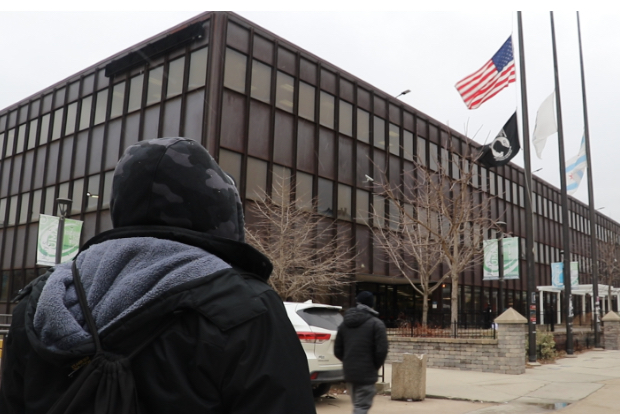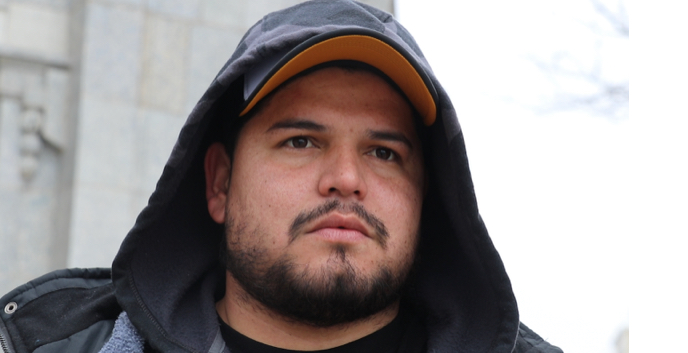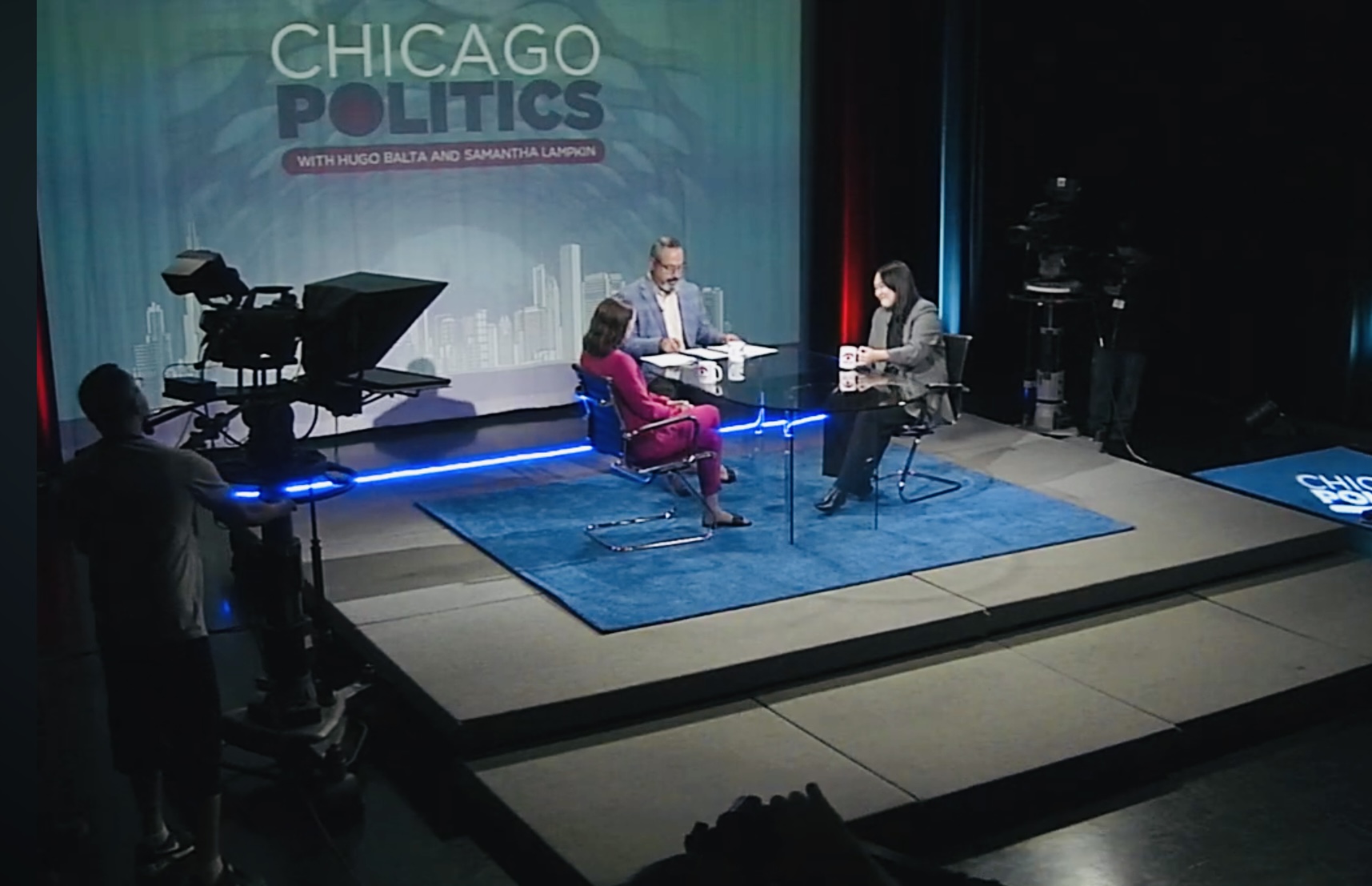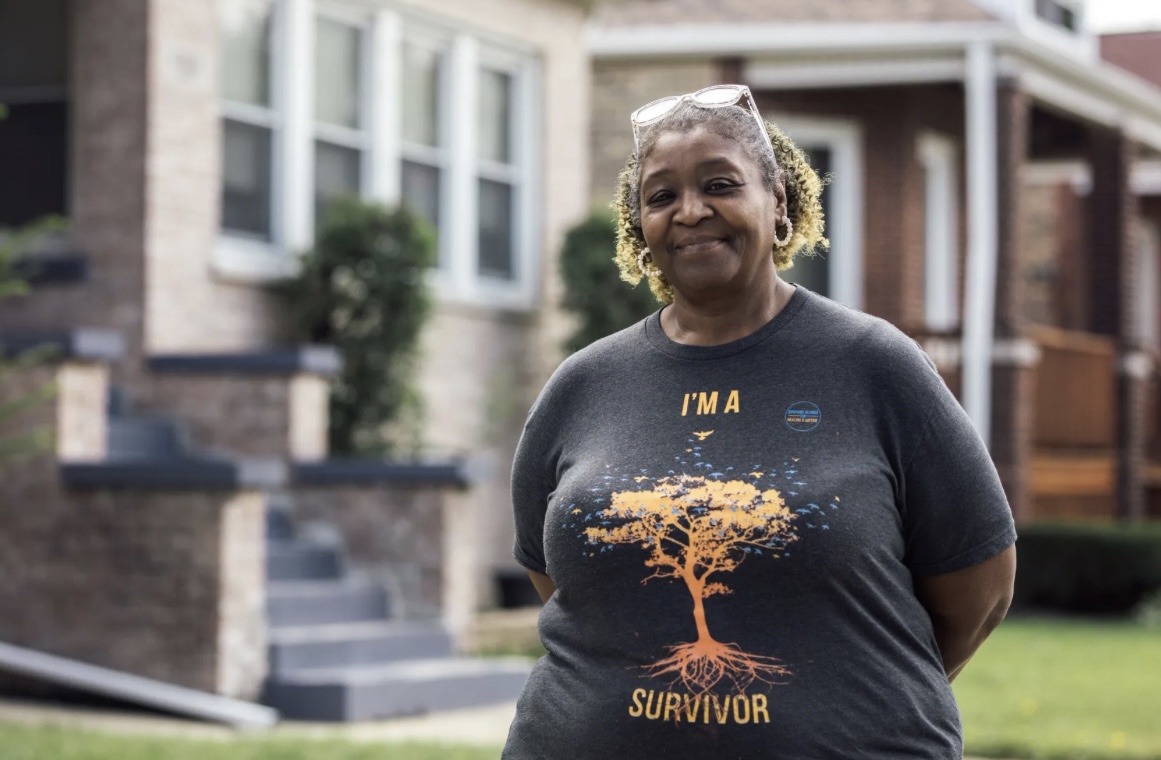A once wealthy, oil-rich country, Venezuela is now in economic ruin. Seven million people have fled from Venezuela since 2015 to escape economic hardship and political repression.
While a majority have migrated to other Latin American countries with neighboring Colombia receiving the most Venezuelan migrants, thousands have made the nearly 3000 mile journey to the United States.

Luis Arguelles stares at an American flag hanging outside of a refugee center in Uptown. (Brenda Ordoñez / MEDILL )
Twenty-nine-year-old Luis Arguelles is one of those individuals. Born and raised in Barinas, Venezuela, Arguelles says it is not the country it used to be.
“Lately in Venezuela it was no longer possible to live, because of the politics there, if you work, you don’t have enough to survive,” Arguelles says.
The sharp turnabout can be attributed to the country’s current president, Nicolás Maduro. Maduro was appointed to serve in 2013 following the death of his predecessor Hugo Chavez.
Shortly after Maduro took office, global oil prices crashed sending Venezuela, a heavily oil- dependent nation, into a recession according to BBC News.
The economic strain was amplified following skyrocketing inflation and financial sanctions placed on the country by the U.S. This resulted in food and medicine shortages leaving many Venezuelans, including Arguelles, with no option but to leave the country.
In September, Arguelles embarked on a month-long journey to the U.S. by foot in search of a better future, leaving behind his five-year-old daughter and family.
“It’s a risk against your family, against your life and so I made the decision to do it by myself, on my own, and later I’ll bring my family but by other means,” Arguelles says.
Arguelles would go on to face many dangers in his journey through South America, Central America until finally arriving to the United States where he was sent to California and slept on the streets. Hearing murmurs about Chicago being a haven for immigrants, Arguelles, along with thousands of other migrants, headed for the windy city.
Since 1985, Chicago has been declared a Sanctuary city meaning that city officials will not ask individuals about their immigration status, disclose that information to authorities, or, most importantly, deny them services based on their immigration status.
This declaration has inspired over 5,000 Venezuelan migrants to seek refuge in Chicago since August. These refugees have been offered various resources such as housing options, food, clothes, transportation, medical services and legal help.
However, due to the sudden wave of migrants flooding to the city all at once, these resources have been severely depleted prompting Mayor Lori Lightfoot to request $53.5 million in state aid in order to continue offering refugees critical resources.
This request was partially fulfilled with the state offering $20 million in funding to support the migrants. While the city received less money than it was hoping to get, for Arguelles, it is more than enough.
“California is not the same as Chicago,” Arguelles says. “In Chicago they treat you like a person. I am grateful 100% grateful 100% more than anything to the city, because everything is a support, everything.”
Cover Photo: Luis Arguelles stares down North Broadway Street in Uptown. (Brenda Ordoñez / MEDILL)

Brenda Ordoñez attends Northwestern University as a first-generation graduate student at the Medill School of Journalism, specializing in Video and Broadcast.
She has extensively covered topics such as immigration, health, and politics. Recently, Ordoñez traveled to Buenos Aires, Argentina where she created a documentary highlighting the hardships Venezuelan migrants face.
IL Latino News partners with Medill School of Journalism in providing students mentoring and real work experiences.




